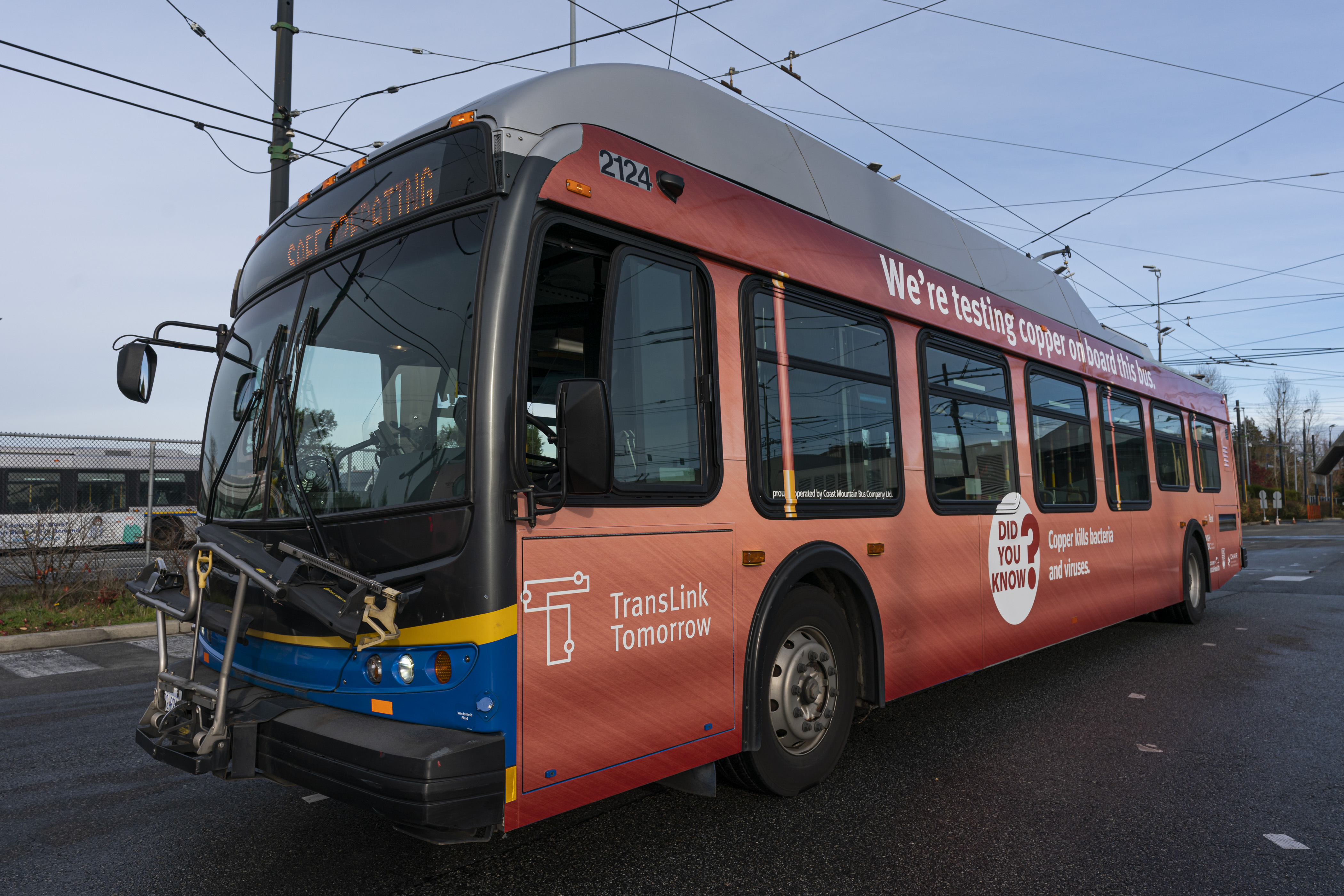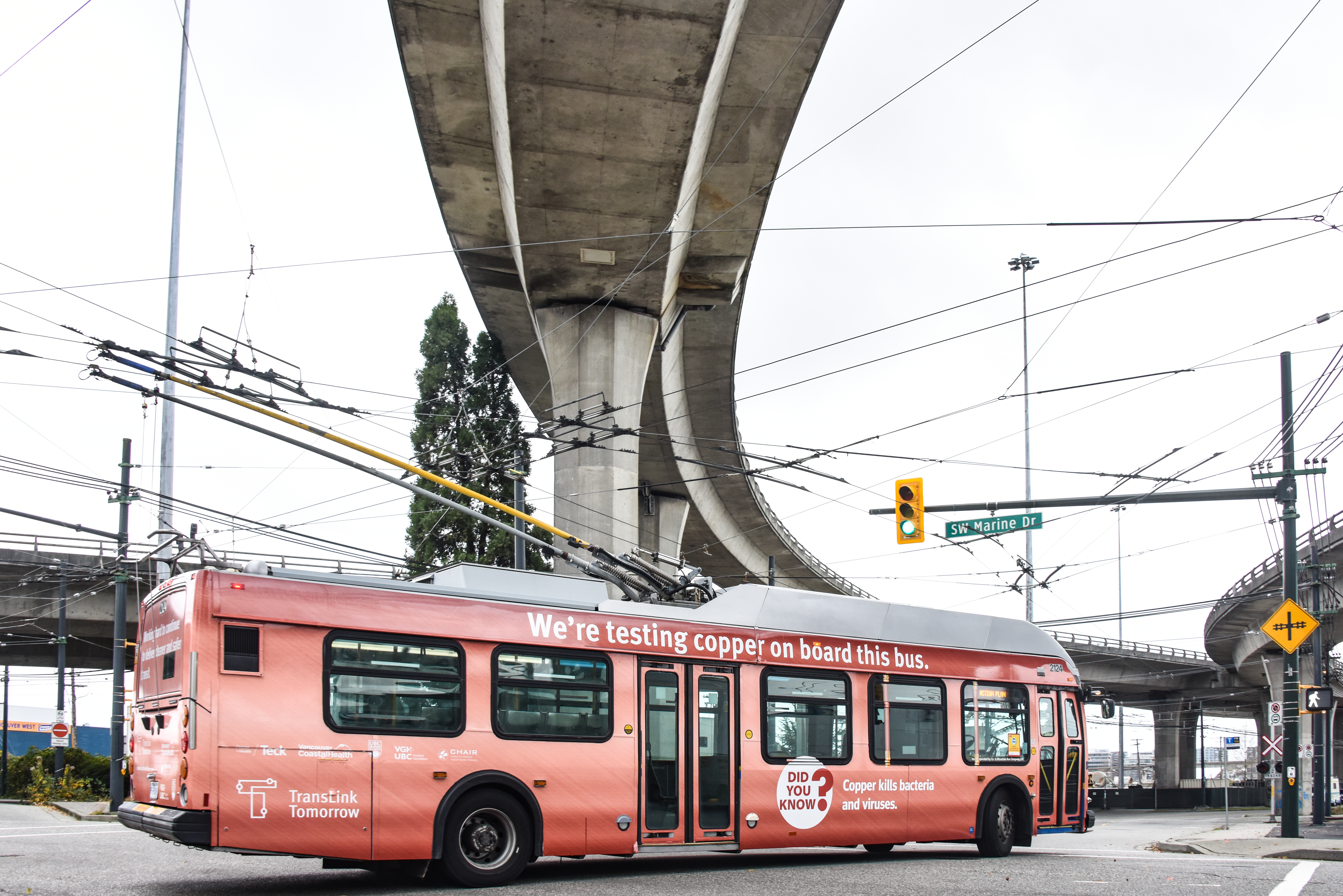
As riders return to public transport, Teck Resources is funding a pilot which will see antimicrobial copper coatings installed on high-touch surfaces on Toronto Transit Commission (TTC) and TransLink vehicles.
The trial will outfit copper on several TTC buses, subway cars, and streetcars in Toronto as well as several TransLink buses and SkyTrain cars in Vancouver.
Teck – a natural resources company – says the project follows a successful pilot phase that supports copper’s ability to kill up to 99.9% of bacteria on transit surfaces.
This new round of testing seeks to confirm those results by evaluating copper surfaces on more transit vehicles over a longer duration of time.
For this phase, the medical microbiology teams at Vancouver Coastal Health (VCH) and Mount Sinai Hospital/University Health Network will be undertaking regular bacteria testing. VCH will conduct laboratory testing on copper’s ability to kill viruses in addition to bacteria.
This trial will test three types of registered products, including functional copper surface layers, copper alloys and copper decals.
Researchers from the University of British Columbia will also test and analyse the durability of the three products as they age over the course of a one-year period.
The results of this trial could improve understanding of options for infection prevention for the transit industry and other industries that rely on shared public spaces, Teck adds.
Dr. Tony Mazzulli, microbiologist in chief at Sinai Health/University Health Network, says: “If this study confirms the results of the initial first phase study conducted in Vancouver showing the effectiveness of copper to kill 99.9% of bacteria, which I believe it will, it will open up the potential for its use in a broad range of settings where there are high touch surfaces.”
TTC CEO Richard J. Leary says: “Participating in a pilot like this with our hospital partners is a real opportunity to look at new ways to kerb the spread of infection. The Covid-19 pandemic has reminded us of the importance of innovating and planning for the future.”
Other partners involved in this project include the Coalition for Healthcare Acquired Infection Reduction, UBC Department of Materials Engineering and Westech Cleaning Audit Systems.











